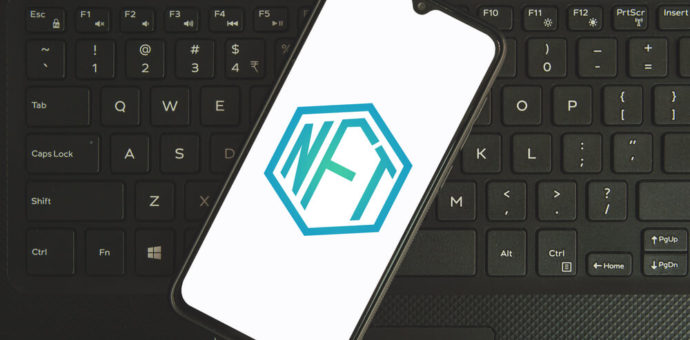In 2021, NFTs had huge growth, driven mainly by providing a guarantee of exclusivity. Thus, several artistic productions (from music and audiovisual works to paintings and graphic arts) began to be commercialized in this way.
In April, for example, a work by American digital artist Beeple was auctioned for US$ 69.3 million. Even famous memes were sold as tokens.
Soon after, the market saw a boom in play-to-earn games, whose characters (or avatars) are traded as NFTs. However, the possibilities of tokens do not stop there. Many sectors will still undergo technological adaptations, and NFTs can transform the way people buy, formalize business, or even store documents.
Coindesk has listed some of the most promising uses. Check out the list.
- Fashion market
In late September, Dolce & Gabbana sold Collezione Genesi for approximately US$ 5.65 million. Also, in September, during London Fashion Week, Auroboros launched a line of digital clothing that can be worn in augmented reality – which was also marketed by NFTs.
- Payments and credit
Purchases, loans, and bills payments are also possible with NFTs, thanks to smart contracts. Tokens can also be split.
- Tickets
In the case of shows and events, NFTs can function as tickets, allowing the amounts collected to be destined directly to the site payment, remuneration of artists and employees, among others, without the need for intermediaries.
- Communities
Many users want NFTs solely because of their exclusivity and because it can be a sign of status. This is true for the works of art or the clothes and accessories we mentioned in item 1. Thus, communities can arise focused on this, with the help of virtual or augmented reality.
In the same way, the Metaverse can also be used for this purpose, according to the analysis of Nonfungible.com.
- Digital real estate market
The idea seems far from reality, but NFTs allow the purchase of virtual land, on which the user can build, for example, a digital conference room – and rent it out for events to real people. It is even possible to create game interactions (widely used in training, for example), in which players can earn real cryptocurrencies.
- Digital identity
In addition to formal documents, NFTs will allow users to store data from their social networks or even work portfolios.
- Health
In the medical area, in addition to storing examinations and patient data, NFTs preserve the confidentiality of information. Another advantage will be the possibility of tracking equipment and substances used in treatments and better control of the entire supply chain.







